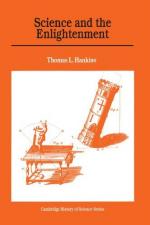
|
| Name: _________________________ | Period: ___________________ |
This quiz consists of 5 multiple choice and 5 short answer questions through Chapter 5, Natural History and Physiology.
Multiple Choice Questions
1. According to the narrator at the beginning of Chapter 5, this chapter is about the world of living things and could be called ________, except as a word and as a discipline, it did not appear until the very end of the eighteenth century.
(a) Oceanography.
(b) Zoology.
(c) Biology.
(d) Geneology.
2. All of the following were forms of fire, according to Boerhaave and Musschenbroek, except for which one?
(a) Electricity.
(b) Heat.
(c) Light.
(d) Wood.
3. Joseph Black studied ________, which had only recently been used as a medicine, according to Chapter 4.
(a) Magnesia alba.
(b) Limewater.
(c) Carbon monoxide.
(d) Quicklime.
4. Van Helmont had proposed an ________ in the stomach that he believed to be the innermost essence of life and that acted by fermentation.
(a) Myxini.
(b) Axolotl.
(c) Archaeus.
(d) Nasalis.
5. Who was the first person to identify a new air different from common atmospheric air,, in Chapter 4?
(a) Cullen.
(b) Lavoisier.
(c) Black.
(d) Newton.
Short Answer Questions
1. Chapter 5 states that the property of "irritability" had first been recognized by ________, who used it to explain why the gall bladder does not discharge bile into the intestines constantly but only when bile is needed.
2. Who saw his physiology as an animata anatome, an experimental science that investigated and explained the special properties and functions of living matter without going beyond the information obtained from the senses?
3. In 1660, Robert Boyle published an account of experiments that he had performed with his ________, according to the narrator in Chapter 4.
4. Joseph Pitton de Tournefort, Antoine de Jussieu, and Carl Linnaeus were considered ________, according to the narrator in Chapter 5.
5. In Chapter 4, what is the name of the group of financiers who obtained from the French government the right to collect taxes?
|
This section contains 289 words (approx. 1 page at 300 words per page) |

|




